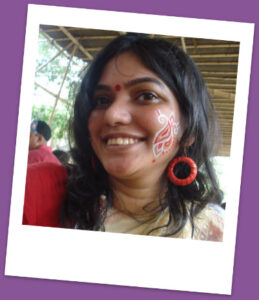“Let the river run free: India’s Tipaimukh Dam and Bangladesh”
January 30 If it goes ahead, a controversial dam planned by the Indian government could have far reaching consequences for citizens in neighbouring Bangladesh, according to Mehzabin Ahmed, 28, a Commonwealth Correspondent from Dhaka.
If it goes ahead, a controversial dam planned by the Indian government could have far reaching consequences for citizens in neighbouring Bangladesh, according to Mehzabin Ahmed, 28, a Commonwealth Correspondent from Dhaka.
Bangladesh is powerless when it comes to the decisions India makes which affect our borders.
At least this is how it seems with the proposed Tipaimukh Dam, a 163 metre high structure of 1500 MW, which will submerge more than 286 sq. km of farmland and dry up a huge area of wet land.
One third of Bangladesh and the lives of 40 million of its citizens would be affected by the construction of the dam on the river Barak in India’s eastern Manipur state.
Worryingly, the Tipaimukh Dam is situated in one of the world’s most active earthquake zones. In 1890 there was a 8.7 rector scale earthquake and it’s usually repeated every 100 – 200 years. If the Dam vanishes, 10 million lives could perish.
Several years ago, the UN Committee on the Elimination of Racial Discrimination urged the Indian government not to construct the Tipaimukh Dam in its concluding observation of the Seventieth session from February 19 to March 9, 2007, and in its special communications made on August 15, 2008, March 13, 2009, and September 23, 2009.
The forum further urged the authorities concerned to follow free, fair and prior informed consent of the people under ILO Convention 107.
In the view of many Bangladeshis, India is violating international laws and conventions. Consider the following:
1. The Helsinki Rules (1966): “Every country with Common River must consider the usage of water in a way that does not affect any countries’ economical and social environment. Consideration must be given to the total harm it might bring on the affected countries.”
2. The United Nations Convention on the Law of the Non-Navigational Uses of International Watercourses (the UN Convention), adopted by the United Nations General Assembly on 21 May 1997, aims at ensuring the utilization, development, conservation, management and protection of international watercourses, and promoting optimal and sustainable utilization thereof for present and future generations.
3. The UNEP Convention on Biological Diversities (1992): “Every Country is resolute to preserve the environmental and biological atmosphere of the world.”
4. The Ramsar Convention on Wet Lands (1971), arranged by the UNESCO: “Every Country in the world is committed to safeguard water reservoir for the preservation of Aquatic ecosystem and natural environment.”
5. The World Commission on Dams (WCD) (1998) established by World Bank and IUCN: “If any country wants to build any big Dam it must consult with the inhabitant of that river basin so that the project is acceptable to them (It has to be stressed that this acceptance must be by the people of that basin not by the government).”
N.B: If any Dam is higher than 15 metres and can contain more than 3 million cubic metres of water, the World Commission on Dams considers it a big Dam. It has to be noted especially here that the Tipaimukh Dam will be 11 times higher and will contain 500 times more water than the concept of big Dam above.
The Tipaimukh Dam project must be cancelled, and let the river run free and be with us. Let us do the right thing for ourselves, for our future generations and for our natural heritage. The United Nations must oversee the whole matter and initiate the establishment of a regional water commission with affected country and ensure rightful water supply for Bangladesh.
The link below is to a petition to urge the United Nations to get involved to stop India from building the Tipaimukhi Dam. http://www.change.org/petitions/united-nations-tipaimukh-dam-must-be-stopped#share
…………………………………………………………………………………………………………………
About me:
“I come from Bangladesh, home to the Royal Bengal tigers and the longest natural beach in the world. I am passionate about working for sustainable solutions to development. I currently work as a development practitioner in Dhaka, Bangladesh. I am also a freelance journalist and a novice debater.
“I am bilingual in Bangla and English. I love learning new languages, and am a keen but elementary student of French. What I have learnt from wise words and life experiences is that, “If you want others to change, you have to be willing to change yourself as well”. Feel free to call me Simi.
…………………………………………………………………………………………………………………
Opinions expressed in this article are those of the author and do not necessarily represent the views of the Commonwealth Youth Programme. Articles are published in a spirit of dialogue, respect and understanding. If you disagree, why not submit a response?
To learn more about becoming a Commonwealth Correspondent please visit: http://www.yourcommonwealth.org/submit-articles/commonwealthcorrespondents/
…………………………………………………………………………………………………………………





